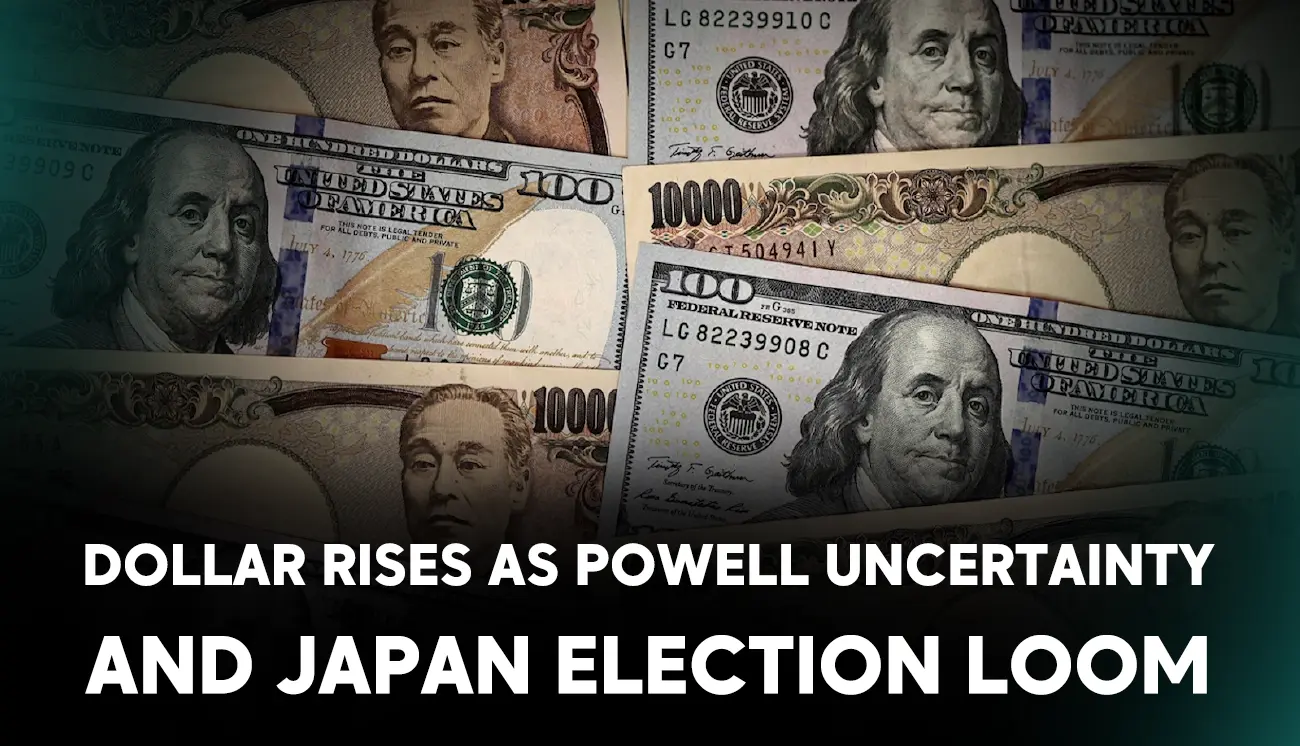The U.S. dollar rose broadly on Thursday as investors assessed recent comments by the U.S. President regarding the future of the Federal Reserve Chairman, while mounting concerns over a pivotal election in Japan weighed on the yen. The dollar gained 0.44% against the euro, bringing it back to levels seen prior to a sharp rally on Wednesday evening. That spike was driven by speculation that the Fed Chair might be dismissed before the end of his term in May 2026, sparking market concerns about the stability of the U.S. financial system.
Although the U.S. President denied having any intention to remove the Fed Chair, he did not rule it out entirely and renewed his criticism of high interest rate policies, calling for faster monetary easing. Despite a pullback in the EUR/USD pair following the comments, the euro remained above the 1.1600 level in early morning trading about 0.5% higher than its pre-statement level. However, it later returned to pre-surge levels, reflecting the market’s readiness to reverse its initial reaction.
In contrast, the yen came under pressure due to anticipation surrounding Japan’s upcoming elections and the absence of a finalized trade agreement with the United States, which raises the threat of imminent additional tariffs. The yen hit its lowest level against the euro in a year, coinciding with opinion polls suggesting the ruling coalition may lose its majority in the upper house. The yen dropped 0.6% to 148.73 per dollar after touching its weakest level since early April, and fell 0.1% against the euro to 172.27.
Japan held phone talks with U.S. officials on the tariff issue, amid data showing a second consecutive monthly decline in exports underscoring the growing negative impact of trade tensions. Analysts suggest that elections, tariffs, and U.S. Japan relations are logical reasons for current pressure on the yen, especially as markets view these elections as a turning point in evaluating the Japanese currency.
Investor focus is now on the August 1 deadline, when higher tariffs are expected to be imposed on several trade partners, following Japan’s failure to reach a deal with the U.S. before the temporary truce expired on July 9. Local media report that preparations are underway for a meeting between Japan’s Prime Minister and the U.S. Treasury Secretary in Tokyo on Friday, where the two sides are expected to discuss trade issues. This comes as the Japanese Prime Minister faces a crucial election test on Sunday, with forecasts suggesting a drop in performance by his ruling coalition which may increase pressure to roll out new fiscal stimulus.
In other currency markets, the British pound declined by 0.2% to $1.3395, while the Australian dollar dropped 1% to a three-week low of $0.6460 after weak jobs data and a rise in the unemployment rate to its highest level since late 2021. The New Zealand dollar also fell 0.54% to $0.5914.
Market debate is intensifying over the Fed’s policy stance, with some analysts suggesting that a shift toward more dovish monetary easing could revive inflation and result in negative real yields on U.S. bonds. This could weaken the dollar in the medium to long term and raise questions about the independence and credibility of U.S. monetary policy, with increasing prospects of significant market volatility.
In this context, June U.S. retail sales data and upcoming capital flow figures are drawing considerable attention, as markets try to assess how trade policies and tariffs are affecting the attractiveness of U.S. bonds to foreign investors.
Stay informed about global markets through our previous analyses. and Now, you can also benefit from LDN company services via the LDN Global Markets trading platform.





